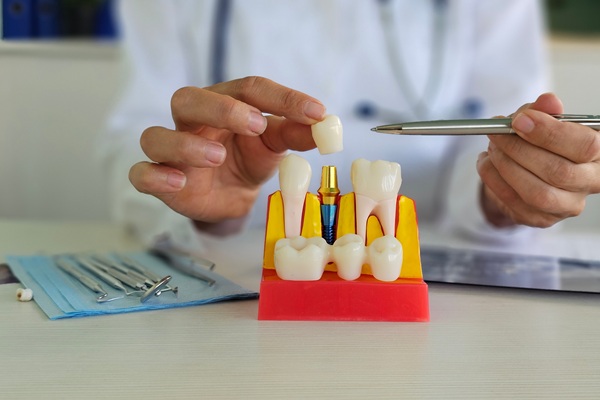Can Root Canal Therapy Save Your Infected Tooth?

Root canal therapy is often performed to treat tooth infections. A tooth infection can lead to severe concerns if left untreated, including the spread of the infection to other parts of the mouth and body and inevitable tooth loss. Root canal therapy can save an infected tooth, restore its long-term health and avoid tooth loss.
Root canal therapy for an infected tooth
There are certain expectations one can have before a root canal procedure to save an infected tooth. Many are anxious before root canal therapy, so understanding what root canal therapy is and how the treatment process works can help patients deal with nerves and properly prepare before the procedure.
A summary of root canal therapy
Root canal therapy is a treatment performed by an experienced and licensed dental professional in which the infected or decayed tooth pulp is removed and filled with a substitute material. The purpose of root canal therapy is to ensure the long-term health of a tooth by ensuring the healthy portion of the tooth root is not at risk. It also strengthens the vulnerable tooth by filling it and using a dental crown for added support, which ultimately prevents the affected tooth from becoming lost.
How root canal therapy can save your tooth
Root canal therapy can remove the diseased portion of an infected tooth to prevent further damage. Without a root canal procedure, an infected tooth may continue to get worse, and inevitably result is a lost tooth. A root canal works by removing the infected pulp and replacing it with a substitute material. This ensures the tooth keeps the same structure and the root is not further damaged. The final step of a root canal procedure is the placement of the dental crown, which further strengthens and protects the damaged tooth.
The root canal therapy process
During the consultation visit, the dentist will determine the severity of the infection. The dentist may use sedation dentistry during the root canal to keep discomfort at a minimal level during the procedure. The dentist will then access the root and remove infected pulp inside of the pulp chamber. Once complete, the dentist will clean the tooth and seal it with a filling material before placing a temporary crown.
The patient will need to come in for a second visit for the placement of the permanent crown once it is ready. The patient will also need to follow the aftercare instructions the dentist provides, which should outline how to practice good oral hygiene, what foods should be avoided during recovery and how to protect teeth from dental trauma.
Schedule a root canal therapy consultation today
Contact us here at our dental office to schedule a root canal therapy consultation if you are experiencing concerning symptoms that may indicate you have an infected tooth. Our professional and experienced dental team is glad to answer your questions, address your concerns and help you improve the health of any damaged or infected teeth you may have.
Request an appointment here: https://princewilliamdental.com or call Prince William Dental at (703) 662-8287 for an appointment in our Gainesville office.
Check out what others are saying about our dental services on Yelp: Root Canal Treatment in Gainesville, VA.
Recent Posts
Root canal treatment is used to address infection or inflammation of the nerves and blood vessels in a tooth’s pulp chamber. The contents of the pulp chamber can become inflamed or infected for various reasons like trauma to a tooth, an untreated crack, or severe deep decay. Root canal treatment often allows patients to save…
Root canal treatment is a common dental procedure performed to save a damaged, decayed, or infected tooth from becoming lost or causing more concerning symptoms. It is important to understand the causes and warning signs that indicate a possible need for a root canal.The most notable and common causes for root canal treatment are an…
The term "root canal" often causes anxiety in patients. This fear is largely due to misconceptions surrounding this dental procedure. However, a root canal is an effective treatment that can relieve pain, save a natural tooth, and prevent further complications. By understanding the most common myths about root canals, patients can approach this treatment with…
A trip to the dental office is the only way to know if a root canal treatment is necessary. However, there are a few warning signs to note. It is critical to schedule an appointment immediately for the treatment if you detect any of the following symptoms. The earlier that you undergo the procedure, the…


